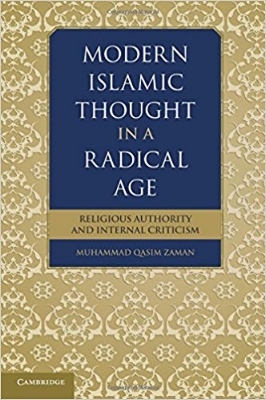2013
Winning Titles
Joseph Sassoon
Saddam Hussein’s Ba’th Party: Inside an Authoritarian Regime
(Cambridge University Press)
The Ba'th Party came to power in 1968 and remained for thirty-five years, until the 2003 US invasion. Under the leadership of Saddam Hussein, who became president of Iraq in 1979, a powerful authoritarian regime was created based on a system of violence and an extraordinary surveillance network, as well as reward schemes and incentives for supporters of the party. The true horrors of this regime have been exposed for the first time through a massive archive of government documents captured by the United States after the fall of Saddam Hussein. It is these documents that form the basis of this extraordinarily revealing book and that have been translated and analyzed by Joseph Sassoon, an Iraqi-born scholar and seasoned commentator on the Middle East. They uncover the secrets of the innermost workings of Hussein's Revolutionary Command Council, how the party was structured, how it operated via its network of informers and how the system of rewards functioned.
‘Joseph Sassoon has written what is undoubtedly the most important book on the Iraqi state and Iraqi politics since Hanna Batatu’s 1978 The Old Social Classes and the Revolutionary Movements of Iraq. Not coincidentally, it is the first work since Batatu that is based on modern Iraqi archival material – in this case internal Ba’th records. Sassoon’s style and objective analysis of these previously inaccessible sources makes his contribution a truly valuable one that has inestimably enhanced our understanding of the workings of the Ba’th Party and the mechanisms of authoritarianism in Ba’thi Iraq.’
Anonymous reviewer
Joseph Sassoon is currently an Associate Professor at Georgetown University and holds the al-Sabah Chair in Politics and Political Economy of the Arab World. He is also a Senior Associate Member at St Antony’s College, Oxford.
Mohammad Qasim Zaman
Modern Islamic Thought in a Radical Age
(Cambridge University Press)
Among traditionally educated scholars in the Islamic world there is much disagreement on the crises that afflict modern Muslim societies and how best to deal with them, and the debates have grown more urgent since 9/11. Through an analysis of the work of Muhammad Rashid Rida and Yusuf al-Qaradawi in the Arab Middle East and a number of scholars belonging to the Deobandi orientation in colonial and contemporary South Asia, this book examines some of the most important issues facing the Muslim world since the late nineteenth century. These include the challenges to the binding claims of a long-established scholarly consensus, evolving conceptions of the common good, and discourses on religious education, the legal rights of women, social and economic justice and violence and terrorism. This wide-ranging study by a leading scholar provides the depth and the comparative perspective necessary for an understanding of the ferment that characterizes contemporary Islam.
This is an extremely interesting and well-written book, offering valuable insights on vital areas of modern Islamic thought. Its strength comes from its highlighting the often neglected, but very dynamic, interaction between the two main centres of Islamic learning (the Indian Subcontinent and the Middle East), and also from the way debates which flared up at the beginning of the twentieth century still remain relevant today. It focuses on ‘internal criticisms’ within the traditional body of Islamic scholarship in the centres of learning in the two regions, with a particular focus on the Deoband School and al-Azhar.’
Anonymous reviewer
Muhammad Qasim Zaman is the Robert H. Niehaus '77 Professor of Near Eastern Studies and Religion at Princeton. He has written on the relationship between religious and political institutions in medieval and modern Islam, on social and legal thought in the modern Muslim world, on institutions and traditions of learning in Islam, and on the flow of ideas between South Asia and the Arab Middle East.
Honourable mentions
Ali Ansari
The Politics of Nationalism in Modern Iran
(Cambridge University Press)
Denis McAuley
Ibn ‘Arabi’s Mystical Poetics
(Oxford University Press)
Travis Zadey
The Vernacular Qur’an: Translation and the Rise of Persian Exegesis
(Oxford University Press)

